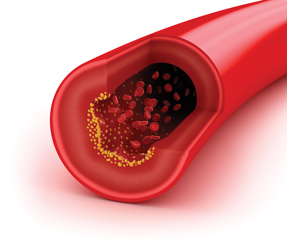Warning on PPIs and C. diff, contraceptive pill mixup
Recalls, warnings, approvals and other regulatory news.
Recalls and warnings
A new warning on proton-pump inhibitors (PPIs) about their association with Clostridium difficile-associated diarrhea (CDAD). A diagnosis of CDAD should be considered for PPI users with diarrhea that does not improve, and patients should be advised to seek immediate care if they experience watery stool that does not go away, abdominal pain, and fever while taking PPIs. The lowest dose and shortest duration of PPI therapy appropriate to the condition being treated should be used.

A recall of norgestrel and ethinyl estradiol tablets (14 lots generic and 14 lots of Lo/Ovral®-28) because some blister packs may contain an inexact count of inert or active-ingredient tablets and the tablets may be out of sequence. As a result of this packaging error, the daily regimen for these oral contraceptives may be incorrect.
A class I recall of Respironics, Inc. Trilogy 100 Ventilators due to a manufacturing issue that can stop delivery of therapy. Part of the blower may move out of position and cause the device to alarm. Failure to respond could result in the potential for harm or death of a ventilator-dependent patient.
A boxed warning and new contraindication on brentuximab vedotin (Adcetris) after two additional cases of progressive multifocal leukoencephalopathy (PML) developed in patients taking the drug. The new contraindication advises against use of Adcetris with bleomycin due to increased risk of pulmonary toxicity.
Additional information about the risk of PML in patients taking natalizumab (Tysabri). Testing positive for anti-JC virus (JCV) antibodies has been identified as a risk factor. A patient's antibody status may be determined using an anti-JCV antibody detection test. The risks and benefits of continuing treatment with natalizumab should be carefully considered in patients who are found to be positive and who have one or more of the other known risk factors for PML. Patients with all three known risk factors have an estimated risk of 11/1,000 users.
A recall of one lot of bendamustine HCL (Treanda) for injection, 25 mg/8 mL, due to particulate matter found in a single vial, which has been identified as glass fragments.
A warning about drug interactions between boceprevir (Victrelis) and ritonavir-boosted HIV protease inhibitor drugs. A drug interaction study showed that taking boceprevir with ritonavir (Norvir) in combination with atazanavir (Reyataz) or darunavir (Prezista) or with lopinavir/ritonavir (Kaletra) reduced the blood levels of the HIV medicines and boceprevir in the body. Patients who are on this combination should be closely monitored for hepatitis C virus (HCV) treatment response and for potential HCV and HIV virologic rebound.
A recall of Duet TRS Universal Straight and Articulating Single Use Loading Units after reports were received of injuries and deaths resulting from their use in thoracic surgery. A contraindication against using Duet in the thoracic cavity will be added to the label.
A class I recall of Salter Labs 7600 Bubble Humidifier due to a manufacturing defect that causes the humidifier lids to fail to pop off at the intended pressure, which can lead to a leak. A humidifier leak will potentially interrupt the flow of supplemental oxygen to the patient. Hypoxemia may develop, resulting in death or serious adverse health consequences.
A warning about counterfeit bevacizumab (Avastin) that may have been purchased and used by some medical practices in the U.S. The counterfeit version is labeled as Avastin, claims to be manufactured by Roche and does not contain the medicine's active ingredient. It was sold by Quality Specialty Products, a foreign supplier that may also be known as Montana Health Care Solutions.
A health advisory about Gris-PEG (griseofulvin ultramicrosize), 125 mg and 250 mg, because an error in the manufacturing process may have caused tablets from one product to be placed in the bottle of another.
Approvals
Glucarpidase (Voraxaze) to treat patients with toxic levels of methotrexate in their blood due to kidney failure. The drug is an intravenously administered enzyme that rapidly reduces methotrexate levels by breaking it down to a form that can be eliminated from the body. The orphan drug was approved based on a study of 22 patients, in which it eliminated 95% of methotrexate overall.
An expanded use for the Gore TAG Thoracic Endoprosthesis, an endovascular graft, to include treatment of life-threatening thoracic aortic transections. The device was first approved in 2005 to treat aortic aneurysms.
Axitinib (Inlyta) to treat patients with advanced renal-cell carcinoma who have not responded to another drug. Approval was based on a trial of 723 patients in which progression-free survival was 6.7 months compared to 4.7 months with a standard treatment.
Tafluprost ophthalmic solution (Zioptan) to reduce elevated eye pressure in patients with open-angle glaucoma or ocular hypertension. The drug is an eye drop used once daily. Possible side effects include darkening of the iris and eyelid and eyelash growth.
Vismodegib (Erivedge) to treat basal-cell carcinoma in patients with metastatic or locally advanced basal cell cancer who are not candidates for surgery or radiation. Approval was based on a study of 96 patients in which 30% of metastatic patients experienced a partial shrinkage or disappearance of tumors. The drug carries a boxed warning about its risk to fetuses, and pregnancy status must be verified before treatment.
Ivacaftor (Kalydeco) for the treatment of cystic fibrosis in patients ages 6 years and older who have the specific G551D mutation in the cystic fibrosis transmembrane regulator (CFTR) gene. About 4% of people with cystic fibrosis are believed to have this mutation. In trials involving 200 patients, use of the drug resulted in significant and sustained improvements in lung function.
An expanded use for imatinib (Gleevec) in adult patients following surgical removal of CD117-positive gastrointestinal stromal tumors. The drug label is also being updated to show that 36 months of the drug significantly prolonged survival compared to 12 months. Imatinib was first approved in 2001 to treat advanced Philadelphia chromosome-positive chronic myeloid leukemia.
Statin warnings on liver enzymes, blood glucose revised
The warning labels on statin medications are being changed, the FDA announced.
The recommendation for routine monitoring of liver enzymes in patients taking statins was removed. The labels now recommend that liver enzyme tests be performed before starting statin therapy and as clinically indicated thereafter. The FDA has concluded that serious liver injury with statins is rare and unpredictable in individual patients, and that routine periodic monitoring of liver enzymes does not appear to be effective in detecting or preventing serious liver injury.

Warnings will be added about the potential for generally non-serious and reversible cognitive side effects (rare cases of which have been reported) and increased blood glucose and glycosylated hemoglobin levels. However, the FDA continues to believe that the cardiovascular benefits of statins outweigh these small increased risks, according to the agency's drug safety update, which can be found online.
Affected drugs include atorvastatin (Lipitor), fluvastatin (Lescol), lovastatin (Mevacor, Altoprev), pitavastatin (Livalo), pravastatin (Pravachol), rosuvastatin (Crestor), and simvastatin (Zocor), as well as combination products lovastatin/niacin extended-release (Advicor), simvastatin/niacin extended-release (Simcor), and simvastatin/ezetimibe (Vytorin).
The label for lovastatin has received additional updates, including new contraindications and dose limitations when it is taken with certain medications that can increase the risk for myopathy/rhabdomyolysis.




